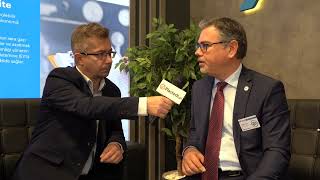 On Tuesday, 28 April 2015, the European Parliament gave its final approval for the previously agreed legislation amending the Packaging and Packaging Waste Directive (PPWD) to reduce the use of conventional single use plastic carrier bags. European Bioplastics welcomes the decision as it recognises the benefits of compostable bags and paves the way for further development of EU-wide standardisation and labelling of compostability for a resource efficient Europe.
On Tuesday, 28 April 2015, the European Parliament gave its final approval for the previously agreed legislation amending the Packaging and Packaging Waste Directive (PPWD) to reduce the use of conventional single use plastic carrier bags. European Bioplastics welcomes the decision as it recognises the benefits of compostable bags and paves the way for further development of EU-wide standardisation and labelling of compostability for a resource efficient Europe.The new legislation obliges EU Member States to introduce measures that reduce the use of lightweight plastic bags by almost 50 percent by the end of 2019 and by 80 percent by the end of 2025 compared to 2010.
"We highly appreciate the strong environmental commitment of the European institutions demonstrated by these ambitious targets. The new legislation reaffirms the potential of biodegradable and compostable shopping bags to tackle the challenges of plastic bag consumption and lead to a more resource efficient Europe," says François de Bie, Chairman of European Bioplastics.
Compostable plastic bags have important ecological advantages, enhance the separate collection of biowaste, and thereby divert it from landfill. Compostable bags should be clearly marked and labelled so consumers can easily identify them as suitable for organic waste collection, which keeps these bags out of traditional plastic waste streams. Against this background, European Bioplastics welcomes the endorsement of EN13432 in the PPWD as the standard to certify biodegradation, and the commitment to further develop EU-wide standardisation of compostability and coherent labelling. The 'Seedling' (European Bioplastics) is an internationally recognized compostability label that is connected to the EN 13432/EN 14995 standards and the certification process managed by the independent institutions DIN CERTCO and Vinçotte.
"For the advantages of compostable bags to take full effect, clear standards, coherent labelling, as well as separate collection of biowaste should be promoted across Europe", de Bie concludes.


